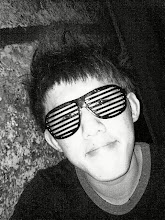
Bodyguards and Assassins(Mandarin Title "Shi Yue Wei Cheng") is a great movie, living up to the dollars you paid and all the celebrities in it.However, the soul of this movie is marred by many awkward moments.
At the level of film-making, it's very authenticated with all the technique. Every character feels like weighted right and with the right tone. That's half because of very skillful make-ups while half because of performances. Also, if you try just a little to follow the director's cue, it wouldn't be hard to get all the details understood with a lot of good surprises. There are several parallel montage sequences paralleling the nobodies with somebodies, dreams with realities, successes with their prices that felt so heavy yet so moving. The illustration of historical brutalities and each person's emotional undertone is also very compelling to watch. All in all, this is indeed a worthwhile experience.
However, please also look beyond the many awkward moments to enjoy it. The awkwardness essentially come from the dogmatic lines directly copied from Chinese official history/politics textbooks. For instance, the part where the businessman Li's only son was selected to be Sun Wen's replacement, he argued that he should bear the results of drawing lots equally with others because "they are supposed to object to the feudal code of ethics". This rigid insertion of "main theme" comment made me very uncomfortable. For the record, there are several similar situations which made me reflect on all the "revolution epics" I've seen. Particularly, "Bodyguards and Assassins" is gonna give you the impression that Sun Wen the "father of Chinese revolution" deserves a good punch in the face because all he did in the movie was to be there as the "only hope" of Chinese future doing stuffs he could have remotely done, if this is the first time you know about Sun Wen's story. For Western audiences, it's important to know the reality with contemporary Chinese mindset. That's nationalism mixed with collectivism is non-arguably the absolute ethic standard, which would justify all the phony lines the actors awkwardly uttered along with all the tragic deaths of heroes. In this predominant context, Sun Wen's image had long been modified in public's mind to fit the "absolute revolutionary symbol" like this movie's demonstration, which is much weaker than its real historic model. Fortunately the storytelling is smoothed out with more than one motivation from Sun Wen' bodyguards. Most of them didn't even know what it means by "revolution", which helped creating the tear-jerking moments.
There are also many regretfully missing notes which would have greatly rewarded the audiences. Nicholas Tse's Ah Si is one of them. This is definitely a very touching, potentially inspiring character in the story. But at the end he was just another used bullet in the revolution. He along with his handicapped wife could have survived the event and live on to see what future brought. But, the movie's ending was fixed on the revolutionary mentor's grievous face, when he just have killed his bad student who murdered his good student in the struggle. Anyway, officially this movie should make you "taste today's sweetness compared to old days' bitterness"(In mandarin we say "Yi Ku Si Tian"). If you don't feel this way, you might just point out the movie's hollowness. At last, this movie deserves its commercial/critic success because of the superb film-making, but it doesn't cover the smell of a propaganda.
